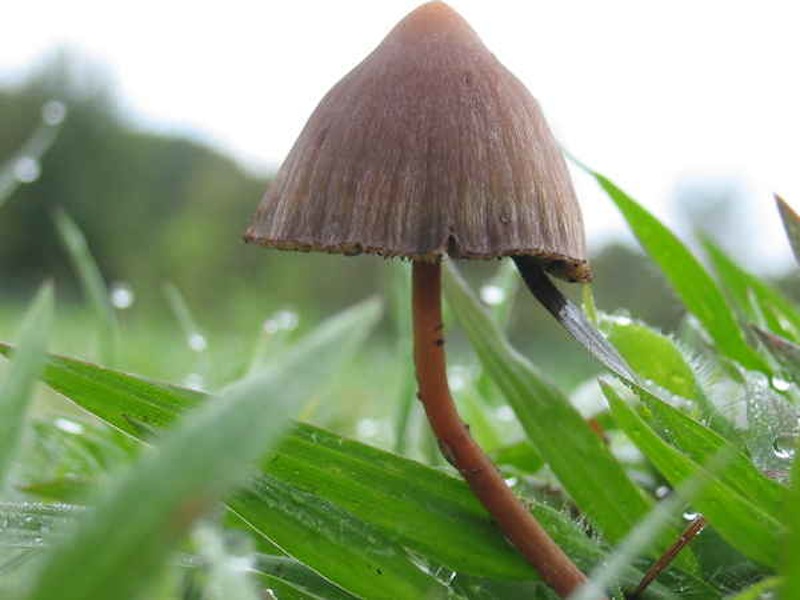Magic-Mushroom Compound Shows Potential for Treating Depression

Get the world’s most fascinating discoveries delivered straight to your inbox.
You are now subscribed
Your newsletter sign-up was successful
Want to add more newsletters?

Delivered Daily
Daily Newsletter
Sign up for the latest discoveries, groundbreaking research and fascinating breakthroughs that impact you and the wider world direct to your inbox.

Once a week
Life's Little Mysteries
Feed your curiosity with an exclusive mystery every week, solved with science and delivered direct to your inbox before it's seen anywhere else.

Once a week
How It Works
Sign up to our free science & technology newsletter for your weekly fix of fascinating articles, quick quizzes, amazing images, and more

Delivered daily
Space.com Newsletter
Breaking space news, the latest updates on rocket launches, skywatching events and more!

Once a month
Watch This Space
Sign up to our monthly entertainment newsletter to keep up with all our coverage of the latest sci-fi and space movies, tv shows, games and books.

Once a week
Night Sky This Week
Discover this week's must-see night sky events, moon phases, and stunning astrophotos. Sign up for our skywatching newsletter and explore the universe with us!
Join the club
Get full access to premium articles, exclusive features and a growing list of member rewards.
A hallucinogenic compound called psilocybin, found in so-called magic mushrooms, has the potential to help treat people with depression one day, a small new study suggests.
However, experts caution that much more research is needed to prove psilocybin's effectiveness and safety for this purpose.
In the study, 12 people with depression were given psilocybin along with supportive talk therapy. Three months later, about half of the people had reduced symptoms of depression, the researchers found. Previously, the people in the study had not seen improvements in their depression after taking antidepressant medications. [11 Odd Facts About 'Magic' Mushrooms]
"This is the first time that psilocybin has been investigated as a potential treatment for major depression, lead study author Dr. Robin Carhart-Harris, a research fellow in the department of medicine at Imperial College London, said in a statement. "Treatment-resistant depression is common, disabling and extremely difficult to treat."
The 12 people in the study who were given psilocybin had depression for nearly 18 years, on average. They had treatment-resistant depression, which means that two previous courses of antidepressants had not helped them. Most of the participants had also previously received some form of talk therapy.
The people first took one low dose (10 milligrams) of psilocybin, as an oral capsule, and then received a second, higher dose (25 mg) a week later. After the participants took the capsules, they remained lying down, in a room with low lighting and music and with two psychiatrists sitting beside them. The psychiatrists provided the people with support and asked them how they were feeling throughout the process. [8 Tips for Dealing with a Depressed Spouse]
The psilocybin had side effects for the participants: Nine of the patients experienced confusion, four experienced nausea and another four had temporary headaches after taking the drug. Two people experienced mild and temporary paranoia. But overall, the people did not experience serious side effects after taking the drug, according to the study, published today (May 17) in the journal The Lancet.
Get the world’s most fascinating discoveries delivered straight to your inbox.
When the researchers followed up with the patients a week later, they found that all of them had experienced at least some improvement in their symptoms of depression, and eight had experienced temporary remission of their symptoms, the researchers said.
By three months later, five of the participants had experienced some degree of relapse of their symptoms, the researchers found. But the other seven people continued to experienced improvement in their symptoms compared with before they had taken the psilocybin, including five who were still in remission.
Two limitations of this study were that the people knew they were receiving psilocybin, and that the study did not involve a comparison group that received a placebo, the researchers said. This means the placebo effect may have played a role in the results. [11 Surprising Facts About Placebos]
Moreover, because most of the participants had actively sought to become part of the study, they may have expected to experience some effect from the drug, the researchers noted. Moreover, five of the people had previously tried using psilocybin.
The researchers also stressed that the study was conducted in a carefully designed, positive environment, which included music, special lighting and psychiatric support, and that more research is needed to tease out the potential influence of these factors on the people's improvement from the effect of the drug itself. Further research should also look at how psilocybin's potential effectiveness compares to a placebo and other treatments that are currently used to treat depression, the researchers said.
"I think it is an interesting area to explore for the future," said Dr. Scott Krakower, a psychiatrist at Zucker Hillside Hospital in Glen Oaks, New York, who was not involved in the study. However, further research should be conducted with more people, he said.
Moreover, people should not expect that a single agent such as psilocybin will be a cure-all for depression, which is a complex condition whose treatment usually also involves some sort of talk therapy, he told Live Science.
Follow Agata Blaszczak-Boxe on Twitter. Follow Live Science @livescience, Facebook & Google+. Originally published on Live Science.
 Live Science Plus
Live Science Plus










